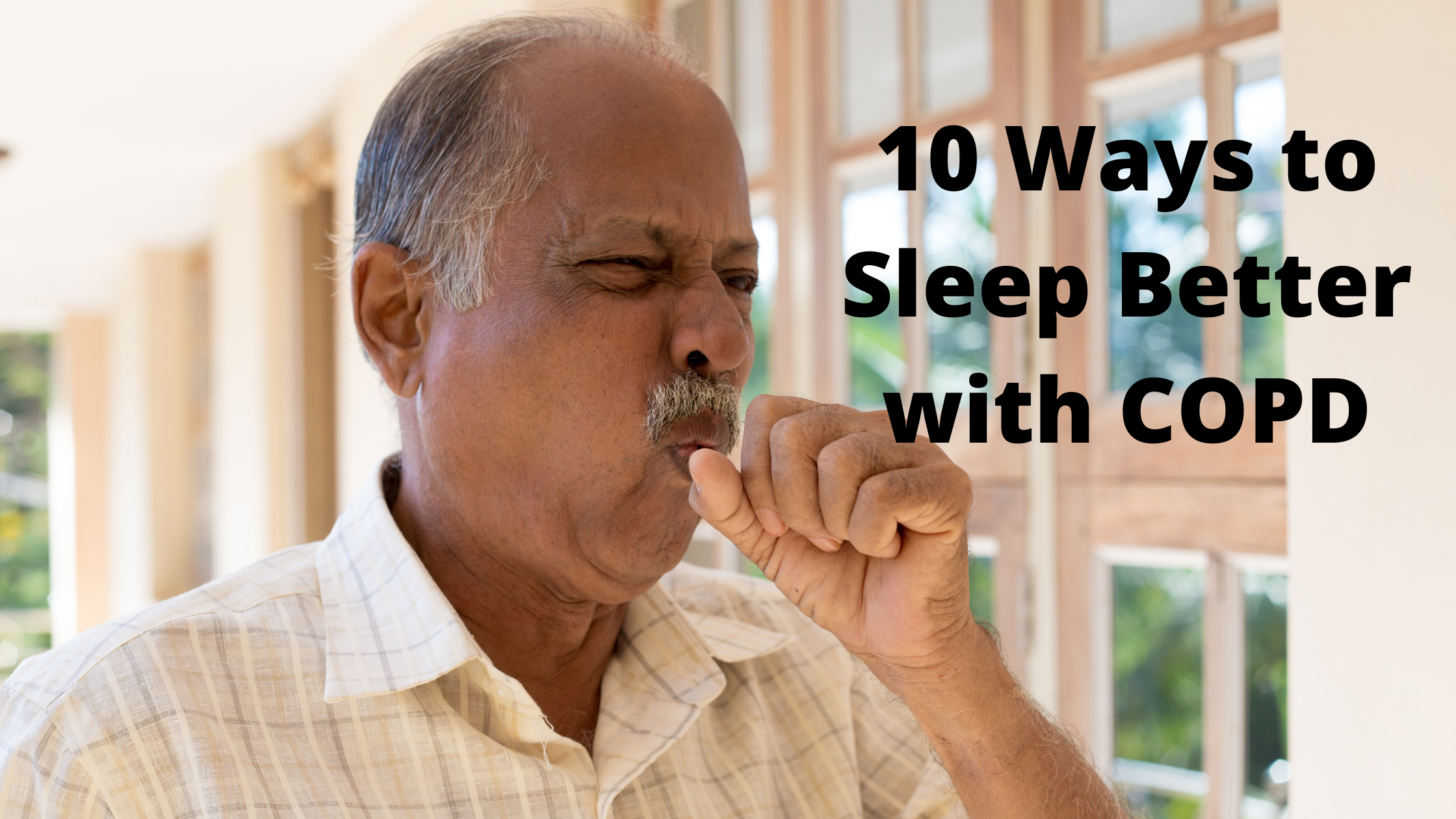Chronic Obstructive Pulmonary Disease (COPD) is an obstructive disease of the lungs. The lung tissue has been so destroyed that it's difficult for it to exchange gas, leading to decreased oxygen levels and difficulty breathing. It can be extremely difficult to breathe at night, partly due to the fact that the lungs are lying flat on the back of the chest wall, making it more difficult to breathe. This can lead to nighttime wheezing and sleep disturbances. Here are some tips for improving sleep with COPD.
1. Adjust your sleep position
Sleeping in a somewhat upright position may take some stress off your lungs. If you can prop yourself up on some pillows, that can allow gravity to work in a way that favors gas exchange, making it a little easier to breathe.
It also helps to prevent acid reflux - GERD (gastroesophageal reflux disease), which is when stomach acid backs up into your esophagus. Not only is this uncomfortable, but is also something that can wake you up at night. It is a common condition, especially those with COPD. Proper positioning as well as changing nighttime eating routines can help improve nighttime GERD symptoms and sleep quality.
2. Avoid napping during the day
If you really need a nap during the day, keep it short and avoid sleeping in the late afternoon. A short nap can restore energy, but a long nap can keep you awake at night and add to the burden of nighttime sleep issues.
3. Unplug from electronics
Build in a 30 - 60 minute device-free buffer before bed. Cell phones, tablets, and laptops cause mental stimulation that can be difficult to shut off in time to go to bed. Also, the blue light from screens suppresses melatonin release, making it harder to drift off. If you must look at a screen before bed, turn it to night mode to minimize the impact of the light.
4. Be more physically active during the day
Exercise is beneficial in those with COPD and can improve the body's use of oxygen, reduce shortness of breath, increase energy and muscle strength, and reduce anxiety and depression. Activity helps to boost endurance during the day, and if you can do more during the day, you can sleep better at night.
5. Try some yoga
Yoga is a great form of exercise for those with COPD. Sometimes, the symptoms of COPD are so great that exercise can be difficult. However, Yoga reduces stress and helps to control breathing. One study found that yoga can reduce the severity of shortness of breath and fatigue and improve sleep in people with chronic respiratory diseases such as COPD.
6. Establish a consistent sleep routine
Going to bed and waking up at about the same time every day, including weekends, can get your brain and body used to getting the full amount of sleep that you need. Also, if you can establish sleep hygiene or a pre-bed routine, then that can also help train your mind and body on when it's time to go to bed. These activities can include showering, baths, reading, stretching, or meditating.
7. Talk to your doctor about using oxygen therapy
People with lung disease lose oxygen in their blood overnight, especially during rapid eye movement (REM) sleep, which is when dreaming takes place. Using oxygen therapy at night allows your body to get more oxygen into the bloodstream and can help you get a better night's sleep. Most of the time, oxygen can be helpful, but for a select few, it can actually be fairly dangerous. Consult with a professional before starting any sort of oxygen therapy.
8. Make your bedroom a haven for sleep
Your sleeping environment is important for getting optimal sleep. If you sleep in a quiet, dark, and cool room, this can be great for helping you nod off. Even consider buying blackout curtains to make sure no light enters your room so you can sleep throughout the night without any disruptions. Your bed comfort is important too. Having a comfortable mattress and sheets can really help you improve your sleep.
9. Get tested for sleep apnea
Get tested for sleep apnea. If you have any symptoms of sleep apnea, like excessive snoring, cessation in breathing throughout the night, or excessive daytime sleepiness, then ask your doctor about scheduling a sleep test.
Sleep apnea, which occurs in about 10-15% of people with COPD, causes oxygen levels in the blood to drop and interrupts the sleep cycle. It can cause other serious problems if left untreated. The condition can be effectively treated by wearing a nasal continuous airway pressure device while you sleep, which gently forces air through your nose to keep the airway open.
10. Review your medications
Talk to your doctor about all of the medications you take and ask whether any of them are causing you to lose sleep. You may be able to adjust the time you take them to prevent them from keeping you awake at night. Also, let your doctor know if pain from COPD interrupts your sleep. Pain is very disruptive, so it's important to be able to manage it at night.
If you continue to have issues sleeping, it's important to talk with your PCP about your COPD, but you can also click the orange button below to take a free online sleep test and speak with a sleep professional. 
Resources:
https://www.everydayhealth.com/hs/managing-copd/sleep-tips-for-copd/

